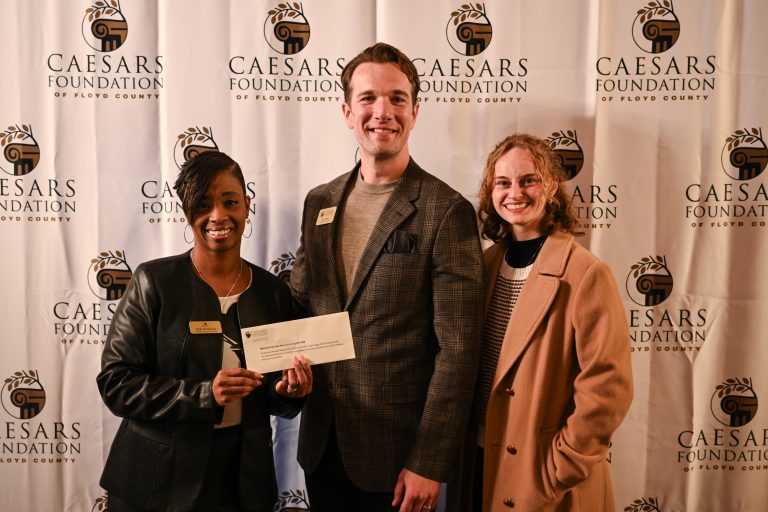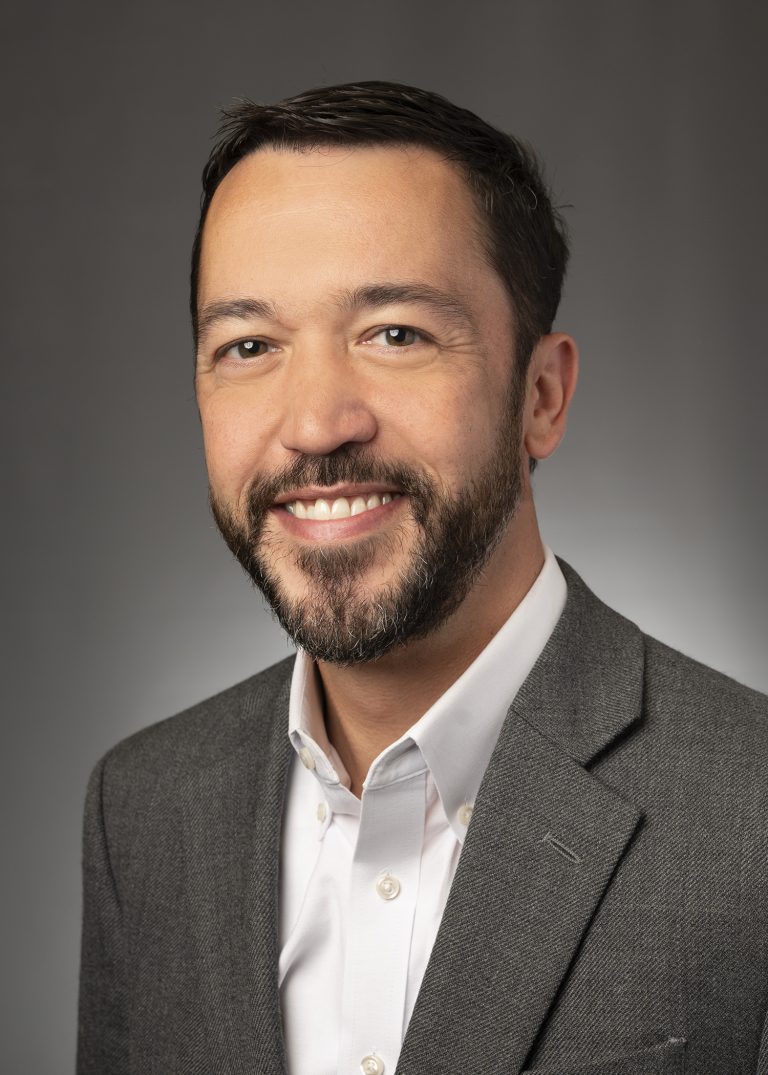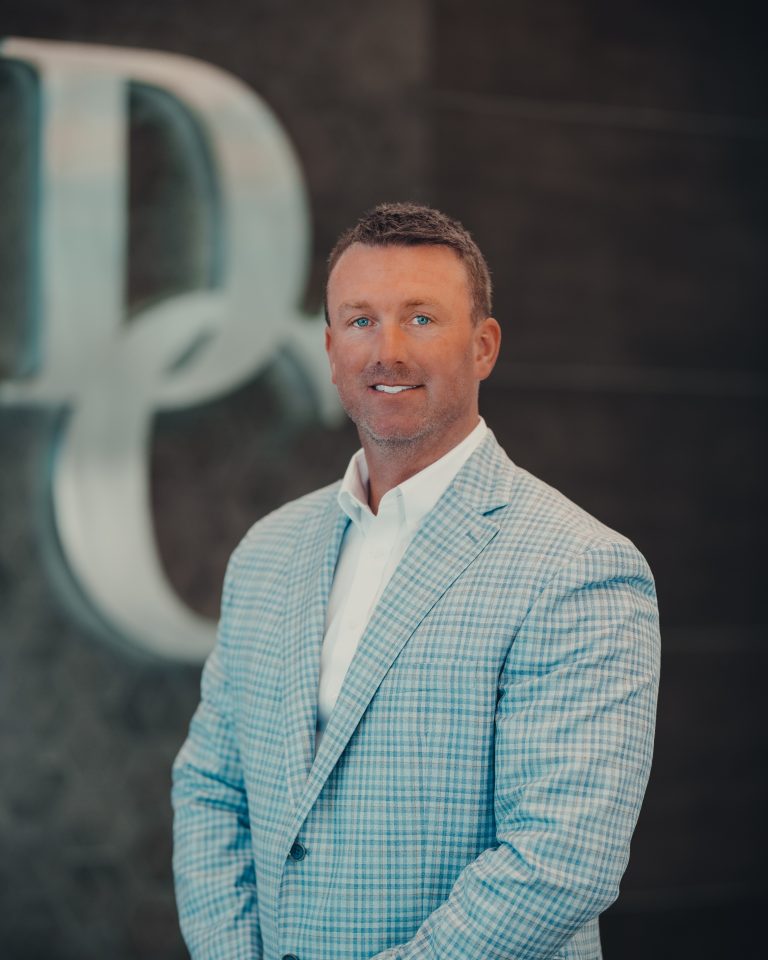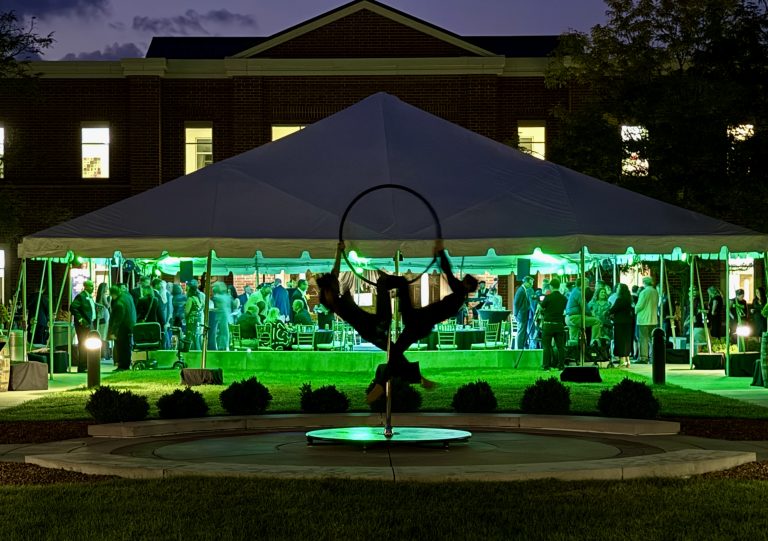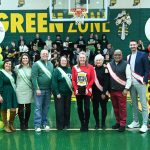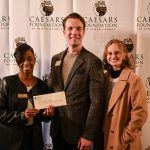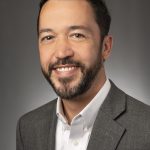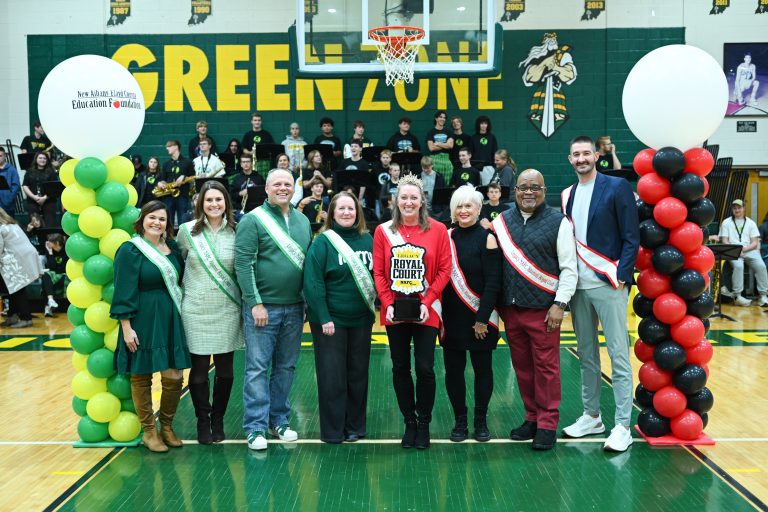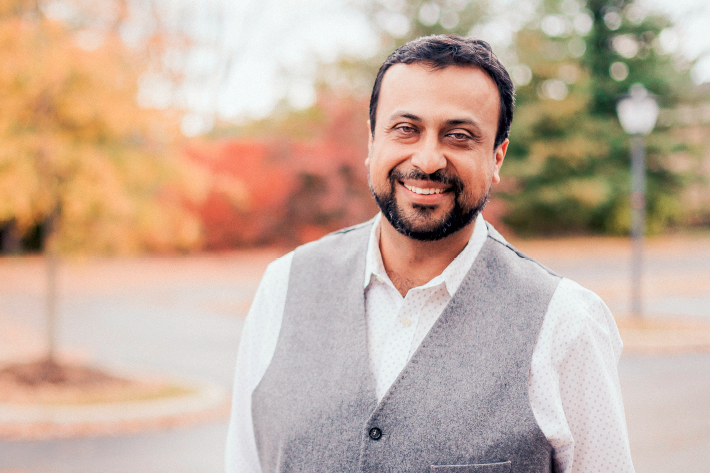
Nonprofit provides sight and more to Third World countries
By Laura Ross
Photos by Christian Watson and courtesy of Dr. Ali Haider
“This is an inexpensive procedure of about $25 an eye that can give sight and is not available to most individuals in Africa, South America, Asia and other places. That’s why I do this.” –Dr. Ali Haider of World Sight

Dr. Ali Haider’s eyes were opened wide as a young medical resident. While performing marathon volunteer eye surgeries in a primitive camp in Pakistan several years ago, he watched yet another family enter the rudimentary facility.
A little girl, maybe no more than 10 years old, gently led her grandfather who was blind in both eyes into the clinic. She had spent most of her young years leading her grandfather through life – in essence, acting as his eyes. He relied completely on the small child, and she lovingly cared for him.
Haider, an ophthalmologist and surgeon, performed cataract surgery on the man and restored his sight. The next day, when the grandfather left, he held his granddaughter’s hand and – this time – led her home, both laughing with joy.
Sitting in his comfortable office, now, years later, that moment is still fresh. “I knew I had to continue doing this,” said Haider. “It’s extremely gratifying and the thanks these patients and their families offer is tremendous and completely affects you. Yes, it’s selfless work, but it’s also selfish to a degree, because it becomes an addiction to helping others have sight. You give from your skill, and in moments, you change someone’s life completely.”
He took that inspiration and founded a nonprofit, World Sight, that provides eye surgery to blind patients in Third World countries for an amazing average cost of around $25.
Haider, 41, who has offices in Southern Indiana – including Madison – and Louisville, was born in Pakistan and lived there and in Swaziland (also known as eSwatini), until he moved to the United States as a teen with his family. His father was the only physician in their area in Pakistan. He often treated patients for free, never expecting anything in return.
“My father helped underserved communities in Pakistan and other parts of the world,” said Haider. “He was everything, from a surgeon to a gynecologist, internist, and family doctor. He was trained as an internist, not a surgeon, but sometimes he’d put a textbook on the table and start operating in the office. That is tremendous when you think about it. We take so much for granted here in the United States.”
Following his father’s lead, as a medical student, Haider made several trips to dangerous and impoverished countries for a week here or there to perform surgery in less than ideal conditions. He’d work around the clock, performing dozens of surgeries, but would return home frustrated.
“I did not want to do mission trips all the time,” he said. “It’s heartbreaking to work for a week, and then what? There’s no follow up. I saw the degree of suffering. You don’t expect to go blind from cataracts in the United States, it’s a normal part of getting older. But, in the rest of the world, especially Third World countries where there is lack of care, people go blind from something as simple as cataracts or even simple cancers like skin cancer that isn’t taken care of and then spreads and turns terrible.”
He realized the solution was not the mission trips, but a foundation with a mission. “It was empty to some degree for me: ‘Oh, look, I did a mission trip.’ It’s not about me; it’s about the patients. If you want to have a true impact, you need the continuum of care.”
Haider reached out to friends, contacts and even patients for ideas and guidance. One patient, Graham Cooke, seized the idea. A lawyer and owner/operator of Louisville’s treasured Hawley-Cooke Booksellers, Cooke was nearing retirement and looking for a new outlet for his energy.
“We started talking about what we wanted to do in the future,” Cooke said. “Dr. Haider has a has a huge heart and it shows. For a very small amount of money, we could deliver sight. That is true impact.”
Soon, Louisville stockbroker and Morgan Stanley money manager Dick Wilson was on board as well. Together, the trio reached out to several local investors and business leaders, and with their help – and the assistance of Lions Club International – World Sight was formed.
Haider realized the key was setting up active clinics in an area, training a surgeon on site, and then supporting that clinic with supplies and guidance. World Sight clinics currently operate in Ghana, Iraq and Tanzania. A fourth clinic also operated in Madagascar but is temporarily closed due to lack of funding. These are clinics in dangerous, poor, underdeveloped or war-torn countries. Haider should know. He was briefly kidnapped once in Iraq. He’s suffered from malaria three times.
“In the beginning, I took a bag and went there on my own to work,” said Haider. “But, now, we contract with a full-time surgeon there who is our local point man. He does his own work; I give guidance, training, and supplies. He can then follow up with all the patients. In some cases, we’ve had surgeons from Africa come here and do fellowships with me.
“Cataract surgery takes me about seven minutes, and – boom! – you can go from blindness to seeing,” Haider added. “This is an inexpensive procedure of about $25 an eye that can give sight and is not available to most individuals in Africa, South America, Asia and other places. That’s why I do this.”
And he does it with extreme efficiency.
“Here’s the challenge,” explained Dick Wilson. “World Sight is one of the most efficient charities because we have no overhead. We have no office, no staff, anything we do is through the internet and Dr. Haider.”
Donors generated by Wilson, Cooke and Haider’s networking raise funds for supplies and kits needed for the surgeons on site to do their job. “If you could work on the efficiencies of a position on site versus sending a team from the USA and the cost of that for a short trip, it’s so much more efficient to support the local ophthalmologists,” said Wilson.
Haider travels to each site through the year. He recently returned from Iraq in late October. “In Iraq, we work with a hospital where their entire ophthalmology department is World Sight physicians. It’s difficult to manage this in a place like Iraq. There was the issue with ISIS and that stops all business. We have trouble importing medicine and equipment because everything shuts down. Many of these countries are corrupt. We sent a cataract machine to Iraq, and it sat in the port for three months until the person there was taken care of. Of course, that frustrates me, but that’s part of the ‘game’ there,” Haider said.
There are other frustrations, too.
Haider’s work in Third World countries has created an internal struggle. “It humbles you,” he said. “Initially, it was extremely shocking and disturbing, things go through your head that you don’t understand. For example, why is there such an abundance of food in one part of the world, where we toss uneaten hamburgers because someone put ketchup on it? Somewhere, kids are starving to death because their bodies are eating their own muscles. It makes no sense. We are wasting so much food when there is starvation. People get all googly-eyed about their animals. If they saw what happens to children over there, these people would be crying their eyes out.”
Many patients in the clinics are blind in both eyes, said Haider. “I must make that decision: Do I have enough equipment for both eyes, or do I only operate on one eye on this person and save the cornea for the next person? Giving sight in one eye makes a person non-blind. I can make two people non-blind. It’s shocking to my mind to not be able to give full sight to one person, but I have limited resources.”
To continue its mission and grow, World Sight needs funding, new supporters, and literally, new eyes on the nonprofit. Haider knows that probably means fundraising, networking, building local boards and volunteer bases, hosting events, and doing all the business side of charitable work. It’s necessary in the world where we live. But, if he could have his way, he’d prefer to focus on the outcome of what they do and keep it simple.
“If I was to stand on the road and simply hold a sign that said, ‘Give me $20, and I’ll give one person sight,’ I’d do that,” he said earnestly. “I bet there is enough goodness in people that they would stop and hand me a $20 bill. It sounds so simple. And, it is.”
While the procedure costs just under $25, it provides far more than sight, Wilson said.
“If you want to make change in the world, look at what World Sight does. We can change the whole economic and social structure of these people’s lives with one operation,” he said. “It’s amazing.”
In the meantime, Wilson and Haider are open to new ideas from the community. “I want to grow World Sight,” said Haider. “But, I need help. I need a development and organizational person, I need more funding. That’s my challenge. I am the technical person; I am the surgeon. I need to spread the word.”
At the end of the day, Haider keeps one thought in mind.
“Darkness is devastating,” he said. “Medicine here in the United States is so difficult. Over there, it’s simple. There’s no paperwork. No computers. No insurance company representatives. There is you, who can help another person. There is a patient who is given sight. There is a family that is forever grateful. That’s all. It’s the core of being human.”
For more information about World Sight, visit www.worldsightnow.org







